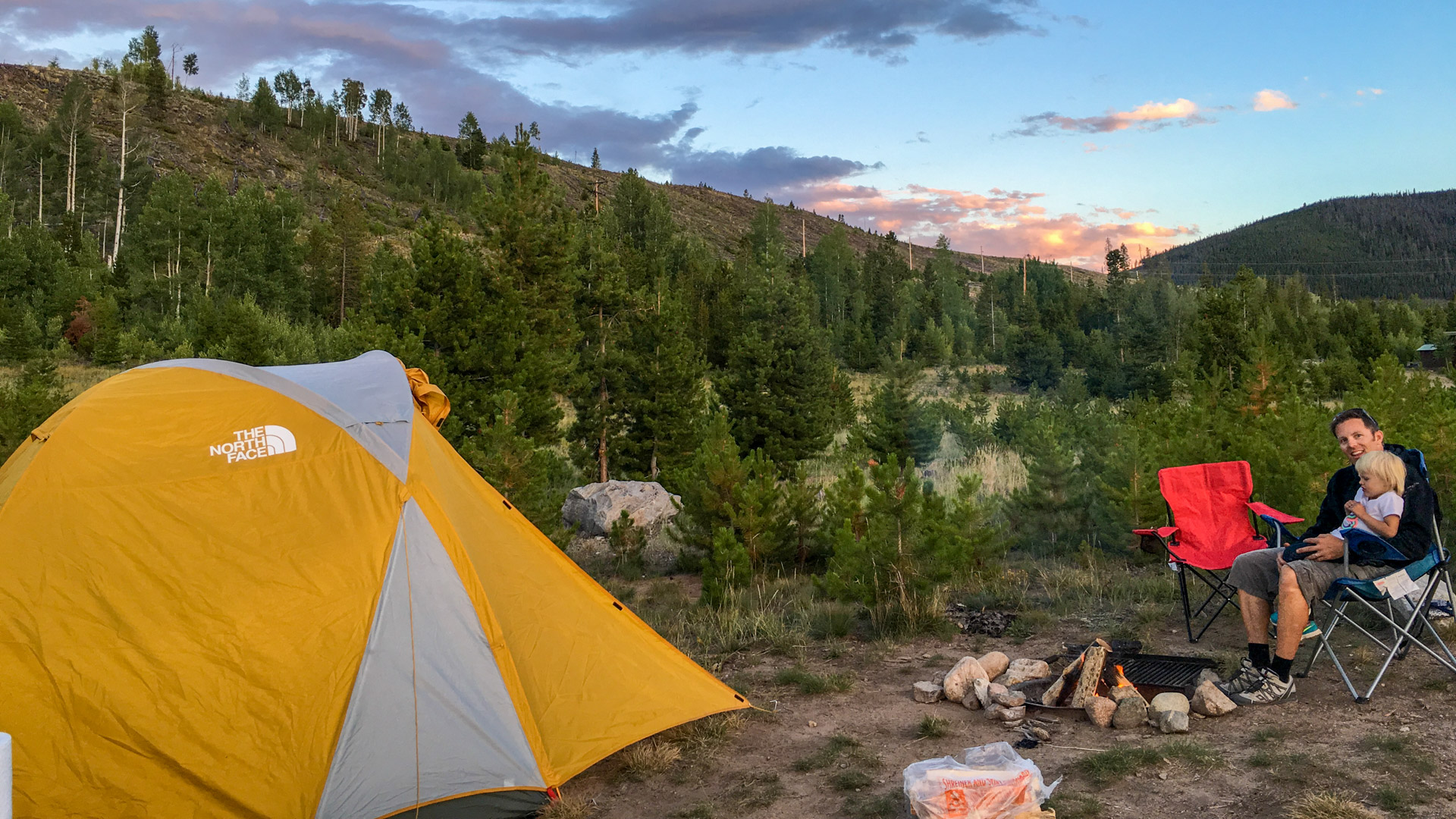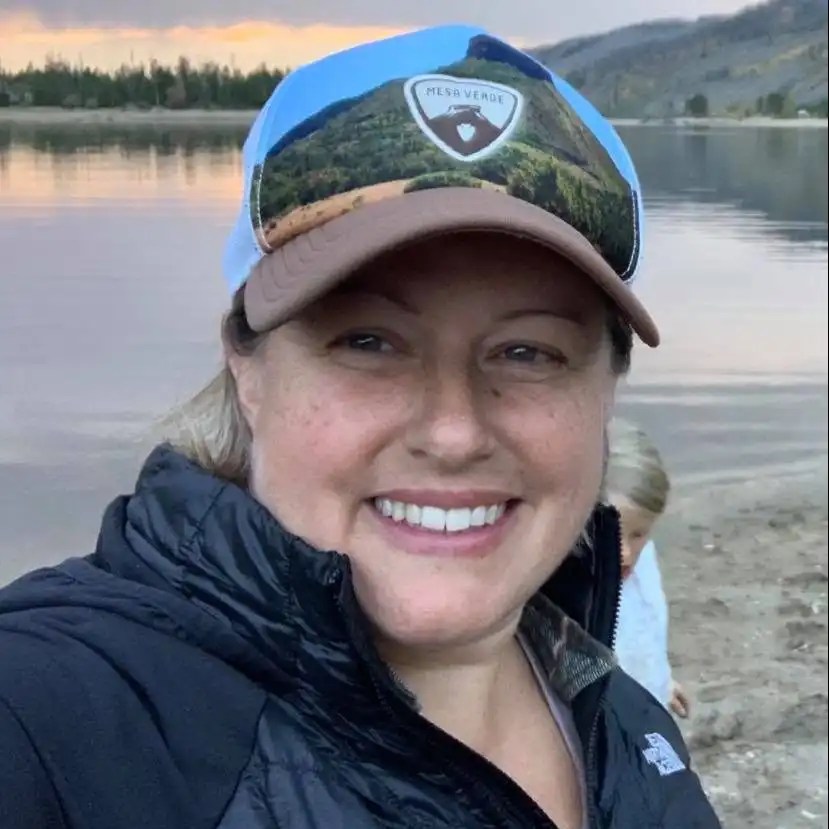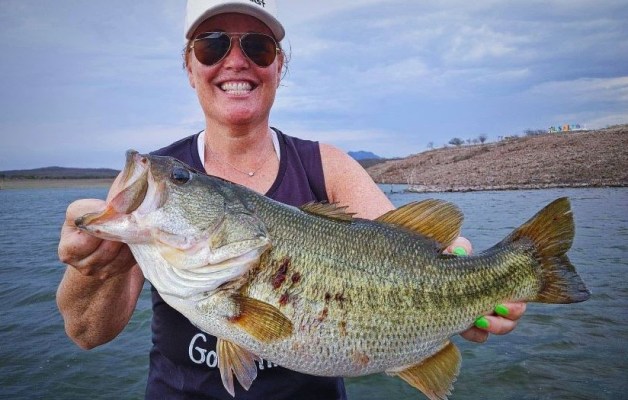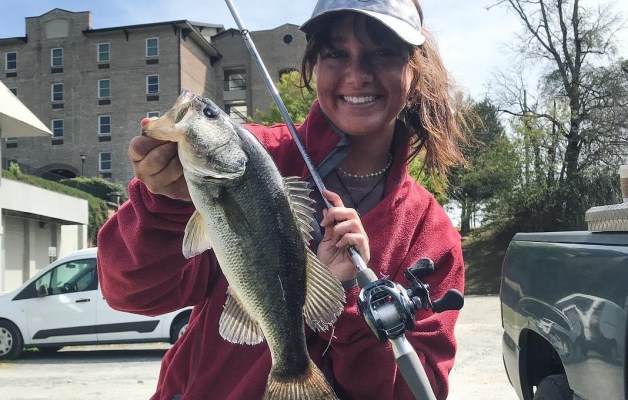
No doubt the anxiety is high when getting ready for your first camping trip. Mistakes will be made, things will be forgotten, dirt will be on everything and more than likely a meltdown or two will occur.
A positive attitude will go a long way along with giving yourself some grace. Use these 10 tips for your first camping trip to help put your mind at ease.
Create A Checklist
This is the number one way to ensure you have everything you need packed. There are great premade ones that cover all the essentials, including this one I created. You can also create your own editable one, as your checklist will change depending on where you are camping, the length of your stay and even the age of your kids.
We recommend packing in labeled and/or clear tubs and bins, with kitchen items in one tub and sleeping items in another. When packing up, stick to foods your kids like and know. Don’t skimp on snacks either. Have ready-to-go snacks easily accessible in the car and at the campsite.

Pack A Special Kid Camp Box
Break out the stickers and paint and let your kiddos decorate their own kid camp box. Fill a plastic storage bin or other tub with games, toys, etc., to keep your campers happy, especially during downtime where you may be trying to cook or get things set up. Focus on unstructured play items, from buckets and shovels to bubbles and binoculars. A camp job (see below) could be to pack up the box and make sure supplies like bubbles and chalk aren’t low for future camping trips to come.

Do A Backyard Dry Run
Set up the tent, test your fire-making skills and even try out some camp recipes with a dry run in the backyard. There is nothing fun about struggling to set up a tent with cranky kids at a campsite, so this allows the opportunity for you to test things out. Find out the creature comforts you may need to make the tent comfy, cozy and warm for yourself and your little campers. This will also help you make sure you pack everything you need.

Choose a Campsite Close By
When choosing a campsite for that first sleeping-under-the-stars experience, choosing a campsite close by is always a good choice. If, for some reason, you need to head home in the middle of the night, you will be close by. Booking a one-night stay is also recommended for your first trip, especially if you have really little ones. See our article on the types of campsites to help you decide which one is right for you. Other great resources are: campendium.com, recreation.gov and reserveamerica.com.

Amenities And Local Activities Matter
Choose a campground and campsite that highlights your child’s interests. If they love skipping rocks, building sandcastles and catching fish, look for camping that is close to water. If your little one is newly potty-trained, a campsite closer to a bathroom may be a good option. Know what recreational opportunities can be found on-site and what activities are close by. Be sure to research beforehand to know what to properly pack and the best campsite to book.

Stick To A Routine
If your family is new to camping, sticking to a typical daily routine will help minimize meltdowns. If you eat dinner at 5:30, try and eat dinner at a similar time while camping. If bedtime stories and songs are a typical part of the nighttime ritual, don’t skip them just because you’re in a tent. Does your pup need a nighttime walk? Take a stroll around the campground and say hello to some fellow campers.

Give Each Child A Camp Job
Giving each camper a job (or multiple) will make them feel like they are an important part of the process. The job can be part of the preplanning, from packing up the car, restocking the kid camp box or helping choose the campsite. Some camp job suggestions are picking up sticks for firewood, unpacking the car or even finding the best place to set up the tent. Post-camp jobs could be helping break down the tent, clearing the campsite to make sure nothing was forgotten or making a list of what went well and what to change for next time.

Set The Rules
Once you arrive at the campsite, go over the rules for the camping trip. Use visual markers for things like how far they can roam from your campsite. Point out any hazards and what you are comfortable with. Teach them what to do if they get lost — blow a whistle, find an adult and so forth.

Seek Learning Experiences
Camping offers the perfect opportunity to teach children so many things from local geography to animal habitats. Maybe your child hasn’t mastered peeing in the woods or maybe you are near a historical site. Learn about the plants and trees in the area and try foraging. Pass on the skills of setting up a tent, chopping firewood or even starting a campfire. These experiences should be age- and skill-level appropriate. This also offers the perfect scenario for teaching Leave No Trace’s seven principles.
Reflect For Next Time
On the way home, or soon after, take the time to reflect on the camping trip. What went well? What did you forget to bring and what can you maybe skip for next time? Did you like this campsite or what do you want to look for when booking the next campsite? We also like to make notes as our trips go along, from items we need to restock or purchase to what we liked or didn’t like about the particular campground. Even as seasoned campers, we still find things we can do better at. And after reflecting, give yourself a pat on the back for surviving your first camping trip.





